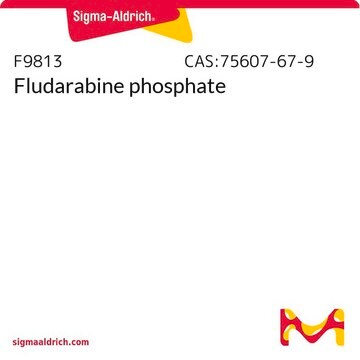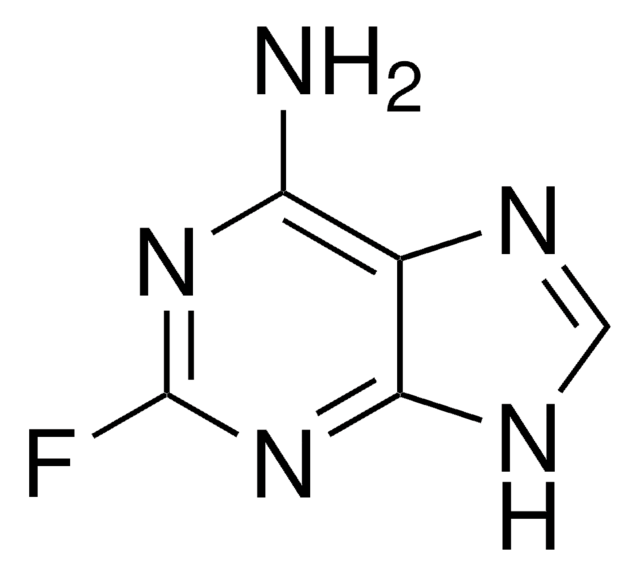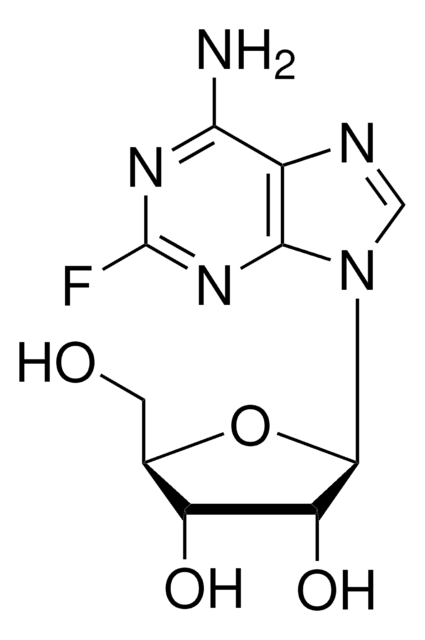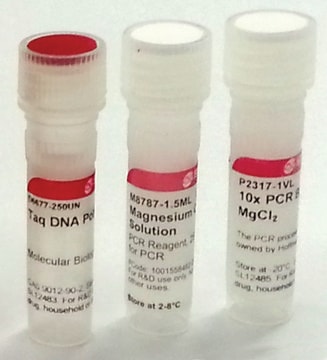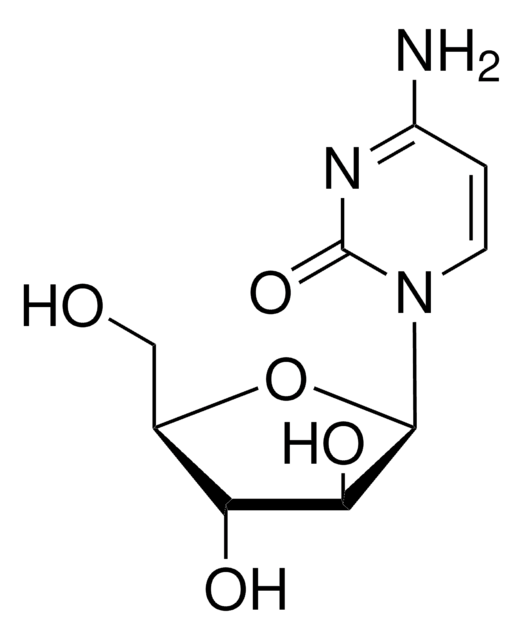F2773
2-Fluoroadenine-9-β-D-arabinofuranoside
DNA synthesis and methylation inhibitor
Synonym(s):
9-β-D-Arabinofuranosyl-2-fluoroadenine, F-ara-A, Fludarabine des-phosphate
About This Item
Recommended Products
Quality Level
storage temp.
2-8°C
SMILES string
Nc1nc(F)nc2n(cnc12)[C@@H]3O[C@H](CO)[C@@H](O)[C@@H]3O
InChI
1S/C10H12FN5O4/c11-10-14-7(12)4-8(15-10)16(2-13-4)9-6(19)5(18)3(1-17)20-9/h2-3,5-6,9,17-19H,1H2,(H2,12,14,15)/t3-,5-,6+,9-/m1/s1
InChI key
HBUBKKRHXORPQB-FJFJXFQQSA-N
Gene Information
human ... ADORA3(140)
rat ... Adora1(29290) , Adora2a(25369) , Adora3(25370)
Looking for similar products? Visit Product Comparison Guide
Application
- to assess its interaction with kinase inhibitor UCN-01 in human leukemia cells (U937 and HL-60) and primary patient samples
- to assess its influence on endothelial cells by apoptosis assay and human microvascular endothelial cells (HMECs) by cytotoxicity assay
- in comparative cytotoxicity studies with Alemtuzumab CDC in 17p13- chronic lymphocytic leukemia (CLL) patients
Biochem/physiol Actions
Warning
Signal Word
Warning
Hazard Statements
Precautionary Statements
Hazard Classifications
Muta. 2 - Repr. 2
Storage Class Code
11 - Combustible Solids
WGK
WGK 3
Flash Point(F)
Not applicable
Flash Point(C)
Not applicable
Personal Protective Equipment
Choose from one of the most recent versions:
Already Own This Product?
Find documentation for the products that you have recently purchased in the Document Library.
Customers Also Viewed
Our team of scientists has experience in all areas of research including Life Science, Material Science, Chemical Synthesis, Chromatography, Analytical and many others.
Contact Technical Service